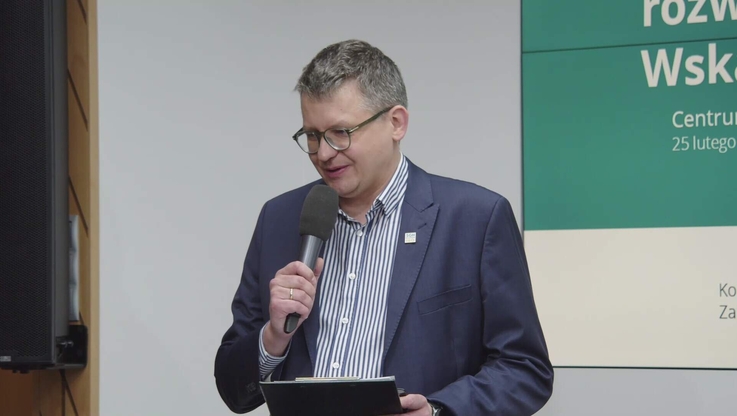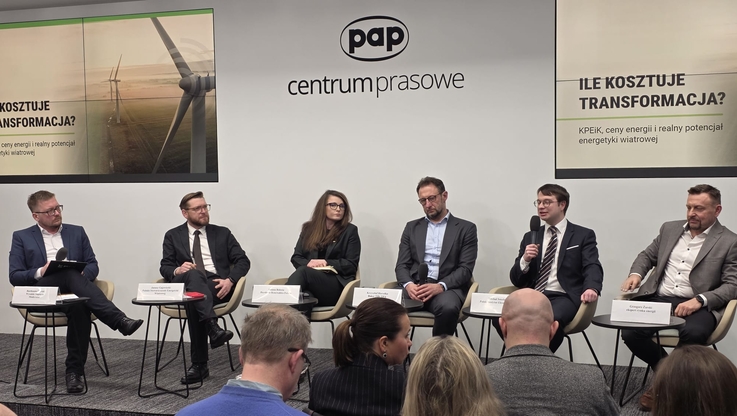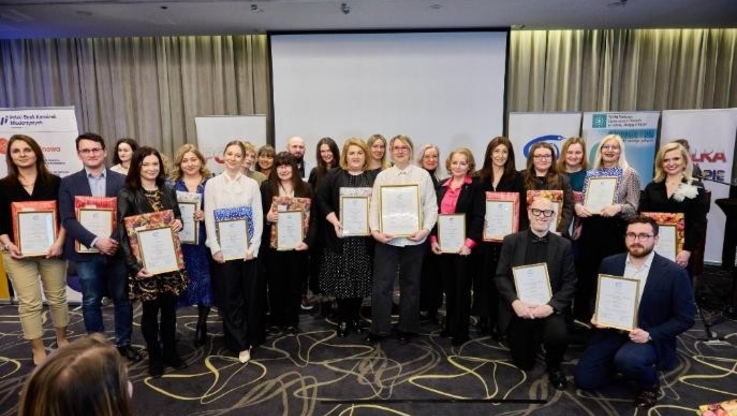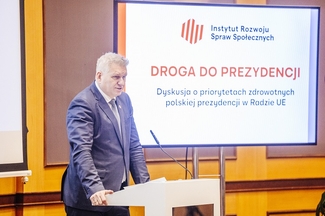Pobierz materiał i Publikuj za darmo
CALHOUN, Ga., Aug. 06, 2020 (GLOBE NEWSWIRE) -- Mohawk Industries, Inc. (NYSE: MHK) today announced a 2020 second quarter net loss of $48 million and diluted loss per share of $0.68. Adjusted net earnings were $26 million, and earnings per share (EPS) was $0.37, excluding restructuring, acquisition and other charges. Net sales for the second quarter of 2020 were $2.0 billion, down 21% as reported and 19% on a constant currency basis. For the second quarter of 2019, net sales were $2.6 billion, net earnings were $202 million and EPS was $2.79, adjusted net earnings were $210 million, and EPS was $2.89, excluding restructuring, acquisition and other charges.
For the six months ending June 27, 2020, net earnings and EPS were $62 million and $0.87, respectively. Net earnings excluding restructuring, acquisition and other charges were $146 million and EPS was $2.04. For the 2020 six-month period, net sales were $4.3 billion, a decrease of 14% versus prior year as reported or 11.5% on a constant currency and days basis. For the six-month period ending June 29, 2019, net sales were $5.0 billion, net earnings were $324 million and EPS was $4.48; excluding restructuring, acquisition and other charges, net earnings and EPS were $364 million and $5.04.
Commenting on Mohawk Industries’ second quarter performance, Jeffrey S. Lorberbaum, Chairman and CEO, stated, “Though sales trends have improved significantly since government restrictions were lifted, the current environment is the most unpredictable in the history of our business. During the quarter, all of our businesses were dramatically impacted, with most of our customers and facilities operating either in a limited capacity or completely shut down for some time. After the company’s sales bottomed in April, our markets improved more than we expected, and shipments exceeded our production rates, reducing our inventories. Our manufacturing levels were impacted by government restrictions, Covid disruptions and employee absenteeism across the enterprise.
At this time, our visibility into the future continues to be uncertain due to the persistent Covid spread and the unknown strength of the economic recovery. Some near-term factors represent a potential upside, including historically low interest rates, rising remodeling activity, consumer discretionary funds being shifted to home improvements and increasing home purchases. Alternately, potential changes in government policies, consumer and business spending and higher Covid infection rates could reduce demand around the world, particularly if governments increase restrictions. Given these factors, our business plans must remain flexible to quickly adjust our production levels.
We are restructuring our business to enhance our results and our future performance. We are reducing SG&A, headcount and lower performing products and SKUs. We are closing less efficient operations and investing in more productive equipment. The largest of these changes are in the U.S., where LVT sales growth and the strong dollar have impacted many of our businesses. We anticipate these global actions will deliver annual savings of approximately $110 to $120 million, with an estimated cost of approximately $170 million, of which the cash cost is approximately $44 million. It will take much of the next year to complete these initiatives and capture the full benefit.
For the quarter, our Global Ceramic Segment sales declined 21% as reported and 19% on a constant currency and days basis. As reported, the segment had an operating loss of $34 million, but excluding restructuring cost was slightly profitable. The decline year over year was primarily due to lower volume and shutdowns attributable to Covid and unfavorable price and mix, partially offset by actions to reduce cost across the business. While business in all of our markets has improved, the strength of our future demand is unknown, so we are reducing our cost structure, decreasing complexity and aligning production with our present sales. In the U.S. ceramic market, many of our retail customers were closed for some time, while construction continued in most markets. To manage the situation, we reduced cost across the business, including furloughs to decrease our overhead, cutting marketing activity, deferring product introductions and controlling manufacturing and distribution costs. Our new countertop facility in Tennessee is ramping up as we expected with cost and productivity continuing to improve. Given pressures on the U.S. ceramic industry, we are consolidating manufacturing into our most advanced facilities and closing our least efficient assets. Our manufacturing operations in Mexico are currently running but were limited during the second quarter under government orders. We are rationalizing our product offering and increasing our position in both premium and promotional products. In Brazil, sales are improving as retail stores re-open in major cities. With inventories low, we are increasing our production to support sales and taking actions to reduce our cost structures. Our southern European ceramic business was impacted by severe lockdowns, especially in Italy; and our Eastern European operations were less affected. All of our plants in Europe are ramping up to satisfy demand, and our service levels should soon approach our target. In Russia, our ceramic business declined significantly when the country locked down and our plants are now operating at similar rates to last year. We are placing a greater emphasis on the new construction channel, which the Russian government is investing in to support the economy.
During the quarter, our Flooring North America Segment’s sales decreased 19% as reported with an operating loss of $45 million as reported and $17 million after excluding restructuring charges. The operating loss was primarily due to lower volume and shutdowns due to Covid partially offset by lower inflation and cost reduction actions in the segment. The segment’s sales declined substantially in April and then improved throughout the quarter as consumers started shopping and remodeling their homes. To enhance the segment’s performance, we are reducing our overhead cost and lowering our SG&A. We are taking out higher cost manufacturing assets and consolidating distribution points. We are streamlining our product offering and investing in more efficient assets to reduce costs. As our LVT sales improved in the quarter, we are increasing our production, and upgrading our LVT offering. In residential carpet, the new home construction channel performed best with housing sales and starts improving through the period. Our mix and pricing declined as the higher value remodeling channel was more impacted and lower priced polyester performed better. The commercial sector continues to be challenged, as many businesses are postponing new investments. Our rug business was severely impacted as many of our customers were completely shut down and has now rebounded as consumers used our rugs to enhance their homes. Our laminate business outperformed our other categories as consumers increased DIY and remodeling projects while at home.
For the quarter, our Flooring Rest of the World Segment’s sales decreased 23% as reported and 20% on a constant currency basis. The segment’s operating margin was 6% as reported or 12% after excluding restructuring charges due to shutdowns and lower volume from Covid as well as unfavorable price and mix, partially offset by lower inflation and productivity actions. Our Flooring Rest of the World results continue to outperform our other segments. The distribution of the segment’s business is much greater in residential remodeling, which is performing better than the commercial category. Across the segment, we have reduced our overhead costs and are consolidating lower volume SKUs. We are now increasing production to meet emerging demand while protecting our employees’ health. Our laminate business outperformed our other products as our waterproof collections and new introductions are increasing consumer preference for our products. Our flexible and rigid LVT sales improved as we progressed through the period as retailers re-opened in our key markets. In Europe, we manufacture almost all of our LVT, and it is positively contributing to our results. In Russia, our new sheet vinyl plant also positively contributed to our results, and we have broadened our product offering to increase our market share. When restrictions were lifted, our insulation and board businesses rebounded in June as contractors completed projects already underway. The Covid crisis was handled differently in Australia and had a less detrimental impact on our performance. The Australian market has largely recovered, and we are seeing improved residential carpet and hard surface sales. New Zealand’s economy is now open, the virus has been contained and our sales are improving.
Since April, we have seen substantial improvement in all of our businesses and markets. The residential remodeling and new construction channels have recovered more than commercial, where businesses are maintaining a cautious approach to investment. Some areas, particularly the U.S., Brazil and Russia, are experiencing an increasing level of Covid cases, which are impacting our operational costs and production levels. Across the business, we are decreasing costs by rationalizing assets, minimizing SG&A, reducing our workforce and managing our product offering and working capital. Much uncertainty remains around all of our markets regarding government policies, business confidence and consumer spending. Our sales in July were approximately flat compared to prior year, but we cannot predict how the sales will evolve going forward. Given this, we are unable to provide guidance for the third quarter, though we anticipate a significant improvement in our results from the second quarter.
Our business is well positioned with a strong balance sheet and deep liquidity. During the second quarter, we generated free cash flow of almost $500 million and issued over $1 billion of new bonds. We are taking the right steps to manage through the pandemic, and we remain focused on delivering innovative products, exceptional value and superior service to maximize our results.”
ABOUT MOHAWK INDUSTRIES
Mohawk Industries is the leading global flooring manufacturer that creates products to enhance residential and commercial spaces around the world. Mohawk’s vertically integrated manufacturing and distribution processes provide competitive advantages in the production of carpet, rugs, ceramic tile, laminate, wood, stone and vinyl flooring. Our industry leading innovation has yielded products and technologies that differentiate our brands in the marketplace and satisfy all remodeling and new construction requirements. Our brands are among the most recognized in the industry and include American Olean, Daltile, Durkan, Eliane, Feltex, Godfrey Hirst, IVC, Karastan, Marazzi, Mohawk, Mohawk Group, Pergo, Quick-Step and Unilin. During the past decade, Mohawk has transformed its business from an American carpet manufacturer into the world’s largest flooring company with operations in Australia, Brazil, Canada, Europe, India, Malaysia, Mexico, New Zealand, Russia and the United States.
Certain of the statements in the immediately preceding paragraphs, particularly anticipating future performance, business prospects, growth and operating strategies and similar matters and those that include the words “could,” “should,” “believes,” “anticipates,” “expects,” and “estimates,” or similar expressions constitute “forward-looking statements.” For those statements, Mohawk claims the protection of the safe harbor for forward-looking statements contained in the Private Securities Litigation Reform Act of 1995. There can be no assurance that the forward-looking statements will be accurate because they are based on many assumptions, which involve risks and uncertainties. The following important factors could cause future results to differ: changes in economic or industry conditions; competition; inflation and deflation in raw material prices and other input costs; inflation and deflation in consumer markets; energy costs and supply; timing and level of capital expenditures; timing and implementation of price increases for the Company’s products; impairment charges; integration of acquisitions; international operations; introduction of new products; rationalization of operations; taxes and tax reform, product and other claims; litigation; the risks and uncertainty related to the COVID-19 pandemic; and other risks identified in Mohawk’s SEC reports and public announcements.
Conference call Friday, August 7, 2020, at 11:00 AM Eastern Time, The telephone number is 1-800-603-9255 for US/Canada and 1-706-634-2294 for International/Local. Conference ID # 8039409. A replay will be available until September 6, 2020, by dialing 1-855-859-2056 for US/local calls and 1-404-537-3406 for International/Local calls and entering Conference ID # 8039409.
The Company supplements its condensed consolidated financial statements, which are prepared and presented in accordance with US GAAP, with certain non-GAAP financial measures. As required by the Securities and Exchange Commission rules, the tables above present a reconciliation of the Company's non-GAAP financial measures to the most directly comparable US GAAP measure. Each of the non-GAAP measures set forth above should be considered in addition to the comparable US GAAP measure, and may not be comparable to similarly titled measures reported by other companies. The Company believes these non-GAAP measures, when reconciled to the corresponding US GAAP measure, help its investors as follows: Non-GAAP revenue measures that assist in identifying growth trends and in comparisons of revenue with prior and future periods and non-GAAP profitability measures that assist in understanding the long-term profitability trends of the Company's business and in comparisons of its profits with prior and future periods.
The Company excludes certain items from its non-GAAP revenue measures because these items can vary dramatically between periods and can obscure underlying business trends. Items excluded from the Company's non-GAAP revenue measures include: foreign currency transactions and translation and the impact of acquisitions.
The Company excludes certain items from its non-GAAP profitability measures because these items may not be indicative of, or are unrelated to, the Company's core operating performance. Items excluded from the Company's non-GAAP profitability measures include: restructuring, acquisition and integration-related and other costs, acquisition purchase accounting, including inventory step-up, release of indemnification assets and the reversal of uncertain tax positions.
CONTACT:
Frank Boykin
Chief Financial Officer
phone (706) 624-2695
Pobierz materiał i Publikuj za darmo
| Data publikacji | 07.08.2020, 11:55 |
| Źródło informacji | GlobeNewswire |
| Zastrzeżenie | Za materiał opublikowany w serwisie PAP MediaRoom odpowiedzialność ponosi – z zastrzeżeniem postanowień art. 42 ust. 2 ustawy prawo prasowe – jego nadawca, wskazany każdorazowo jako „źródło informacji”. Informacje podpisane źródłem „PAP MediaRoom” są opracowywane przez dziennikarzy PAP we współpracy z firmami lub instytucjami – w ramach umów na obsługę medialną. Wszystkie materiały opublikowane w serwisie PAP MediaRoom mogą być bezpłatnie wykorzystywane przez media. |





